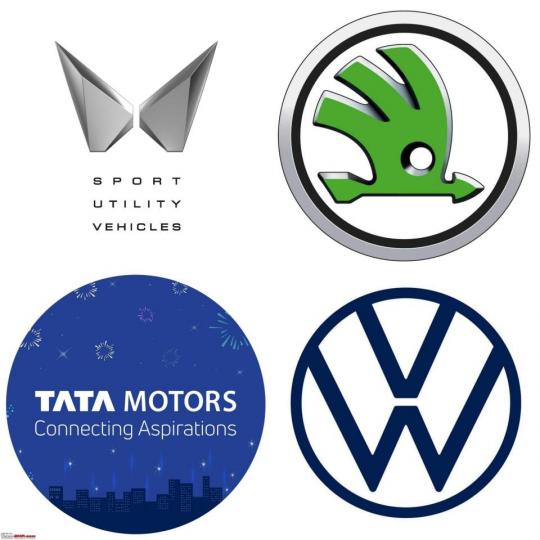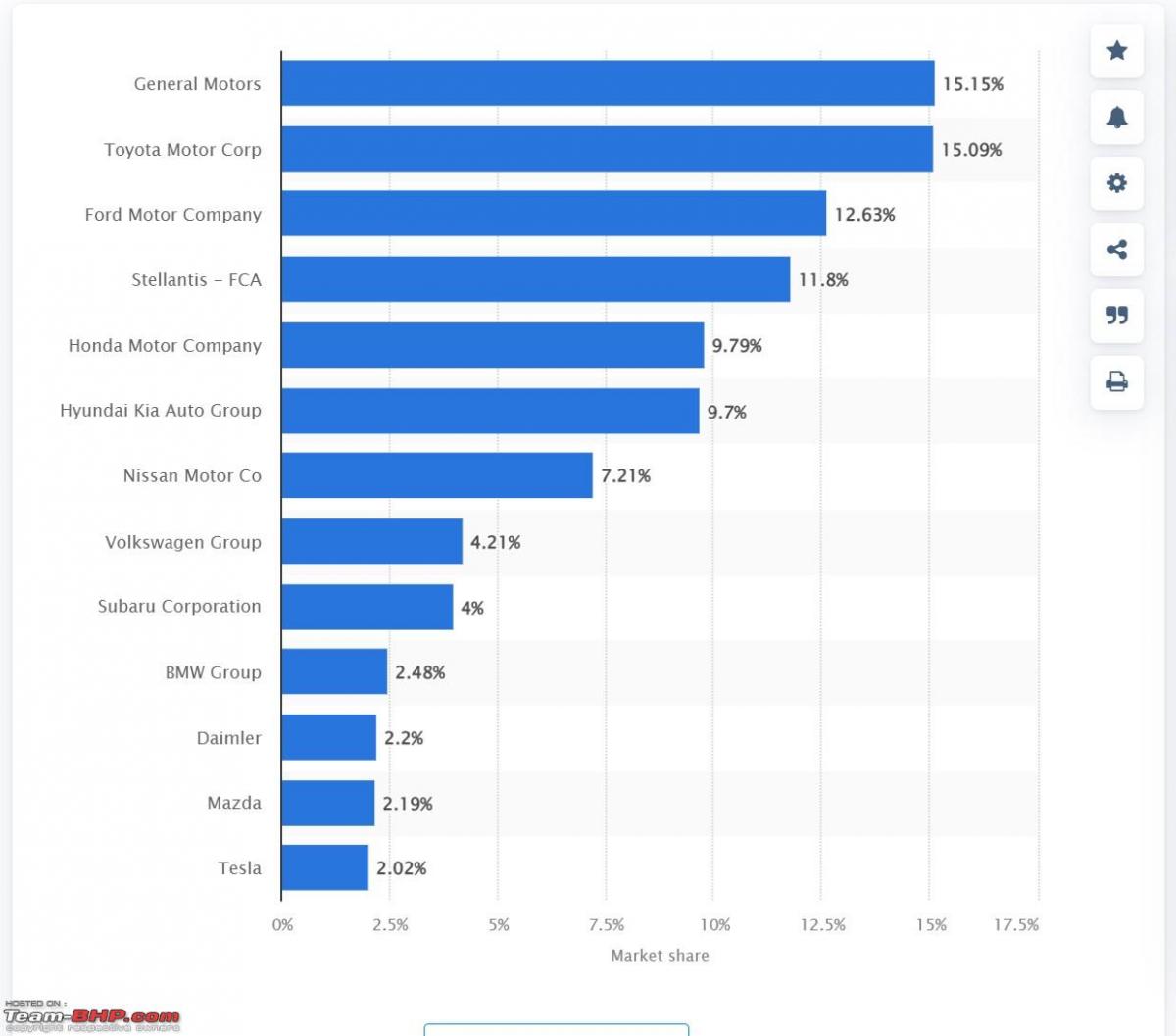News
Automobile companies in India: Why are they struggling
Since 2017, four companies have stopped their operations in our country. These include Harley-Davidson, General Motors, Ford and UM Motorcycles.
BHPian tvr_sdq recently shared this with other enthusiasts.
Our government asked Tesla not to sell Chinese manufactured Tesla cars in India. We can easily figure out why the government would have told so. They want Tesla to set up their factory here in India, but Elon Musk is not ready to give up easily by setting up one.
Since 2017, 4 major automobile manufacturers stopped their operations in India. Including global giants like Harley-Davidson, General Motors, Ford, and UM. When makers like them leave India, we really lose some great quality products and the shock waves created by the news are quite serious. For example, when Ford Motors left, around 4000 direct employees and 35000 indirect employees were in trouble. Not only that, 7.1% of our overall GDP and 49% of our manufacturing GDP is contributed by the automobile industry. These figures speak us the importance of the automobile sector and its existence. So, when a manufacturer like Ford leaves India, it is not just the owners of an EcoSport or an Endeavour who suffers, the entire market will have its side effects.
The current value of the Indian Automobile Industry is around 118B USD, and we are expecting growth to 300B USD. India is currently the world’s largest 2 and 3-wheeler manufacturer and fourth-largest passenger car manufacturer. When it comes to heavy vehicles, we stand third and in the case of vehicles like the tractors, we are again the world’s largest manufacturer.
In spite of all these ranks and honors, the time band of 2018 to 2019 had been one of the most severe tensions and our automobile industry suffered significantly. According to the SIAM (Society of Indian Automobile Manufacturers), there was a drop of 18.71 percent in overall automobile manufacturing and a 31% drop in passenger car manufacturing.
The reasons for this drop were:
- Demonetization.
- A sudden hike in the price of vehicles due to the hike in associated price and fees in various stages, like the registration, etc.
- GST (around 28 percent GST is levied on automobiles).
- Advent of shared mobility like Ola, Uber, etc.
- Transition from BS4 to BS6.
- People holding back on EVs or waiting for them.
Ford and Chevy left. Toyota is surviving with the help of Maruti, Honda stopped the CRV and Civic. Nissan was struggling and Magnite came to the rescue. VAG group has an India 2.0 project (on which expectations are high). Jeep is here with the facelifted Compass and a 36 lakhs price tag. Maruti being the jack of all trades is surviving. Surprisingly, KIA Motors have had a stampeding success, where they sold around 3 lakh cars in 3 years. (I would like to mention Isuzu here, which have survived here despite anything and everything). The fear of people around the foreign manufacturers has in fact boosted the market for Indian manufacturers and they are coming up with world-class products (which is really hopeful).
But still, there must be something for why Ford, Chevy, Honda struggled here. Let us take a look at the challenges faced by the Indian manufacturing sector to get a better idea.
- Unskilled labor: Yes. We have cheap labor here in India, but the skillsets when compared to other countries are not competitive enough.
- Indian land prices place it among one of the most expensive to own places in the entire globe. So, setting up a manufacturing facility would be obviously difficult.
- Cost of power.
- Capital cost, which when compared to other countries, is around 20 to 30 percent higher here.
- Logistics costs: The global average of logistics is around 8% of the revenue, while in India, it is around 13%.
There could be other factors also and all these are making the companies suffer. Automobile manufacturing is not a simple process and it needs very huge investments. If these issues are not fixed, it would be difficult for manufacturers to survive here.
Currently, we are experiencing a huge demand in the automobile industry, in the post covid era, as people are preferring private transport over the public ones. This has given better times to the manufacturers and they are hoping the same trend to continue going forward too.
Let us see how it goes.
Here's what GTO had to say about the matter:
As a customer & an enthusiast, I don't like how 2 companies (Maruti & Hyundai-Kia) control ~70 percent of the market. Throw in Tata & Mahindra, and you have 4 groups controlling 85 - 90% of the car market. That leaves all the other MNCs fighting for scraps, just 10 - 15% of remaining customers.
This greatly restricts choice and for those MNC makers, it becomes a big struggle. They either exit (Ford, GM), pull back on their aggression (VW) or put India on the backburner. A lot of them become 1 - 2 product wonders (Nissan), and it's hard to ask Global HQ for more investments when your market share is less than 2%.
I wish we had a market where 8 players had 80% of the market. That would lead to far greater competition & choices for us.
See the USA. Only two players have 15% (source). What's more, the market size is so huge that even 2% market share means volumes big enough for multiple products & profits:
Here's what BHPian kosjam had to say about the matter:
I don't understand why everybody keeps saying that we lost major (at least globally) automakers from India.
Harley Davidson and UM, both saw the sales numbers of other brands, and wanted a piece of the pie. They did no research, no analysis of requirements of the Indian customer, no checks on how their vehicles would perform in India, and no comparative study of their product quality vs the offerings by their competitors. Expectedly, their products came up substandard and below par in this highly competitive market. More than the Indian reasons, it is the companies' own failures that caused them to shut shop and leave, licking their wounds.
Coming to the 4-wheelers, while both Ford and GM were early entrants, they never innovated, they never tried to read the market on what should be an ideal vehicle to be successful in India. I don't buy into the ONLY CHEAP CARS SELL WELL IN INDIA, because Hyundai with its offerings, and even Kia, have demonstrated that if you promise quality, Indians are willing to invest. Both Ford and GM came to India expecting Indians to fawn over their inferior products just because they are American brands and the notion that Indians go ga-ga over anything American. The Indian market gave them a reality check and as with the 2 wheeler segment, complete apathy towards the Indian specific requirements ensured that they too, ran away, tail between their legs.
An easy simile is the difference between McDonald's and KFC/Burger King, while the former did its research and innovated with India specific products, the latter duo initially suffered, wrongly expecting Indians to fawn over them just because they are American. They learnt from their mistakes and improved their offerings, tailored to Indian tastes, and the results are already visible.
Here's what BHPian shancz had to say about the matter:
I don't agree with the backdrop of this thread and IIRC we had the discussion in another thread immediately after Ford's exit.
Our market is tough, with a lot of varying requirements which don't really link together, varied expectations across the T1-Remote spectrum, design preferences etc. but in the end very rewarding to the guys who get it right.
So I disagree that Kia and Hyundai's success is surprising, they're the ones who got it right. Even TML got it right since the Tiago.
Also disagree that we're only buying cheap stuff, just look at the top sellers. They reflect the ground realities of our diversity with the Alto-WagonR and Creta-Seltos sharing places.
If we're buying cheap then how is the 12-14 lakh i20, a hatchback, selling in thousands while the way cheaper but bigger Triber not making the top charts.
A friend from EU, after hearing how different life experiences were from colleagues from across our country said, "I have understood that I cannot comprehend how you guys belong to the same country with such widely varying experiences."
Foreign manufacturers have been catering to very homogeneous populations and preferences but when they arrive and fail to adapt they'll eventually have to leave.
Finally, the "fear" of foreign brands leaving isn't a fear but a "fact", coming from ex Daewoo and ex Chevrolet experience.
But Hyundai is considered Indian for all practical purposes so the "foreign" isn't about the origin but the commitment to the market which has been forged over years.
Check out BHPian comments for more insights and information.
















.jpg)



